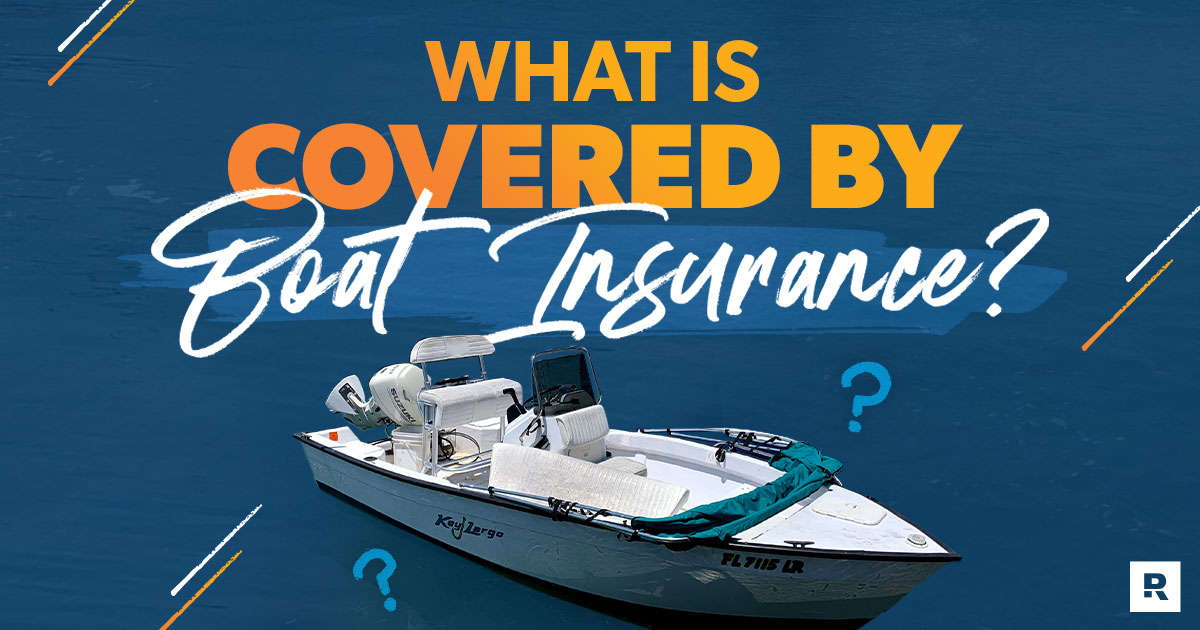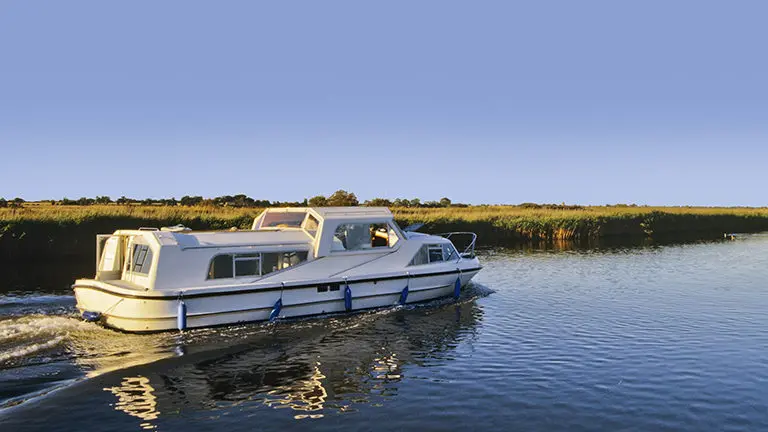Owning a boat is a significant investment that offers unparalleled freedom and adventure on the water. However, with that freedom comes the responsibility of ensuring that your vessel is adequately protected. Boat insurance is crucial for safeguarding your investment against potential risks, whether you own a small fishing boat or a luxurious yacht. This comprehensive guide will explore the essential boat insurance coverages you need to consider to protect your valuable asset.
Understanding Boat Insurance
Boat insurance is designed to provide financial protection against a variety of risks, including damage to your boat, liability for accidents, and other related incidents. While some coverages may be optional, certain policies and coverages are essential to ensure comprehensive protection.

Key Types of Boat Insurance Coverage
- Hull and Machinery (H&M) Coverage
This coverage protects the physical structure of your boat (hull) and its mechanical and electrical systems (machinery). H&M coverage is crucial as it covers damage caused by accidents, collisions, fire, theft, and weather-related incidents. Without this coverage, repairs or replacement costs could be financially devastating.
- Liability Coverage
Liability coverage is essential for protecting you against legal and financial responsibilities arising from accidents that cause bodily injury or property damage to others. This coverage typically includes:
- Bodily Injury Liability: Covers medical expenses, lost wages, and legal costs if someone is injured in an accident involving your boat.
- Property Damage Liability: Covers the cost of repairing or replacing another person’s property damaged in an accident involving your boat.
- Medical Payments Coverage
Medical payments coverage helps pay for medical expenses incurred by you, your passengers, or anyone injured while on your boat, regardless of who is at fault. This coverage is particularly important for covering immediate medical costs following an accident.
- Uninsured/Underinsured Boater Coverage
Not all boaters carry insurance, and some may not have sufficient coverage. Uninsured/underinsured boater coverage protects you if you’re involved in an accident with an uninsured or underinsured boater. It can cover medical expenses, property damage, and other related costs.
- Comprehensive Coverage
Comprehensive coverage protects your boat against non-collision-related risks such as theft, vandalism, fire, and natural disasters. This coverage is essential for protecting your investment from a wide range of potential threats.
- Collision Coverage
Collision coverage pays for damages to your boat resulting from collisions with other boats, docks, or submerged objects. This coverage ensures that repair costs are covered, reducing the financial burden on you.
- Personal Effects Coverage
Personal effects coverage protects your personal belongings on the boat, such as fishing equipment, electronics, and other valuables. This coverage is particularly useful for boaters who carry expensive gear on board.
- Fuel Spill Liability Coverage
Accidental fuel spills can have severe environmental and financial consequences. Fuel spill liability coverage protects you against the costs associated with cleaning up accidental fuel spills and any resulting environmental damage.
- Towing and Assistance Coverage
Towing and assistance coverage provides reimbursement for costs incurred if your boat becomes disabled and requires towing or emergency assistance. This coverage is invaluable, especially if you frequently venture far from shore.
- Agreed Value vs. Actual Cash Value
When choosing boat insurance, you’ll need to decide between agreed value and actual cash value coverage:
- Agreed Value: In the event of a total loss, the insurer pays the amount agreed upon at the time the policy was written. This option provides greater certainty about the payout amount.
- Actual Cash Value: In the event of a total loss, the insurer pays the current market value of the boat, considering depreciation. While premiums are typically lower, the payout may be less than expected.
Factors Affecting Boat Insurance Premiums
Several factors influence the cost of boat insurance premiums, including:
- Type of Boat: Larger, more powerful boats generally have higher premiums due to increased risk.
- Boat Age and Condition: Older boats may have higher premiums due to maintenance issues, while newer boats might have lower premiums.
- Usage and Location: Boats used in high-traffic areas or for commercial purposes may have higher premiums. Additionally, boats stored in hurricane-prone areas might face higher premiums.
- Navigational Limits: Policies may have geographical limits on where you can operate your boat. Operating outside these limits can affect premiums.
- Deductibles: Higher deductibles typically result in lower premiums, but you’ll pay more out-of-pocket in the event of a claim.
- Safety Equipment: Boats equipped with safety features such as fire extinguishers, alarms, and GPS systems may qualify for discounts.
Tips for Choosing the Right Boat Insurance Policy
- Assess Your Needs
Consider the type of boat you own, how often you use it, and where you operate it. This will help you determine the appropriate coverages and limits for your policy.
- Compare Quotes
Obtain quotes from multiple insurance providers to compare coverage options and premiums. Make sure to compare similar policies to get an accurate comparison.
- Review Exclusions
Carefully review policy exclusions to understand what is not covered. Common exclusions may include wear and tear, damage from marine life, and intentional damage.
- Check for Discounts
Ask about available discounts, such as multi-policy discounts, safety course discounts, and loyalty discounts. These can help reduce your premium.
- Work with an Experienced Agent
An experienced insurance agent specializing in boat insurance can provide valuable insights and help you find the best policy for your needs.
Maintaining Your Boat Insurance Policy
Once you’ve chosen a boat insurance policy, it’s important to maintain it properly to ensure continuous protection:
- Regularly Review Your Policy
Periodically review your policy to ensure it still meets your needs. Update your coverage if you make significant upgrades to your boat or if your usage patterns change.
- Perform Regular Maintenance
Regular maintenance helps prevent accidents and mechanical failures, reducing the likelihood of claims. Keep records of maintenance and repairs as they may be required when filing a claim.
- Report Changes Promptly
Notify your insurer of any significant changes, such as a change in ownership, relocation, or modifications to your boat. Failure to report changes can affect coverage.
- Adhere to Navigational Limits
Operate your boat within the geographical limits specified in your policy. Operating outside these limits can void your coverage.
Filing a Boat Insurance Claim
In the event of an accident or damage, follow these steps to file a boat insurance claim:
- Report the Incident
Notify your insurance company as soon as possible. Provide details of the incident, including the date, time, location, and a description of what happened.
- Document the Damage
Take photographs and gather evidence of the damage to your boat. This will help support your claim and expedite the process.
- Obtain Repair Estimates
Obtain estimates from reputable repair shops. Your insurer may require multiple estimates before approving the claim.
- Submit Required Documentation
Provide all necessary documentation, including repair estimates, photographs, and any other requested information. Keep copies of all documents for your records.
- Work with Your Adjuster
Your insurance company will assign an adjuster to assess the damage and determine the payout. Cooperate with the adjuster and provide any additional information they may need.
Conclusion
Boat insurance is an essential component of protecting your investment and ensuring peace of mind on the water. By understanding the various types of coverage available and choosing the right policy for your needs, you can enjoy your boating adventures with confidence. Regularly review and maintain your policy, and work with a knowledgeable insurance agent to ensure you have the best protection possible. Remember, the right boat insurance coverage can make all the difference in safeguarding your investment and enjoying the open waters worry-free.
